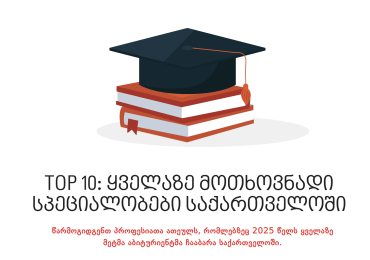The international economic integration has been underway for decades, facilitated by open economic policies and trade liberalization in a growing number of countries. The pace and scale of today’s globalization is without precedent and is associated with the rapid emergence of global value chains as production processes become increasingly fragmented geographically. Furthermore, the multinational enterprises (MNEs) play a prominent role, as they have a global reach that enables them to coordinate production and distribution across many countries and shift their activities. The importance of MNEs in today’s global economy is linked to their strengths in a range of knowledge-based assets, such as management and intellectual property, which makes it possible to take advantage of profitable opportunities in foreign markets by setting up subsidiaries and affiliates abroad. Tax authorities shall use all applicable instruments, domestic and international to ensure that taxpayers pay the right amount of tax to the right jurisdiction. A key aspect for making tax authorities ready for the challenges of the 21st century is equipping them with the necessary legal, IT and administrative tools for verifying the compliance of taxpayers.
In September 2013, G20 Leaders introduced a comprehensive plan, developed with OECD members, to restore confidence in the international tax system, and to ensure that profits are taxed where economic activities take place, and value is created. According to the OECD, there is annual revenue loss of $100 to $240 billion due to Base Erosion and Profit Shifting (BEPS).Therefore, OECD and G20 countries have taken joint action to address the challenges within the international tax system. Special measures have been designed that could be implemented domestically and through tax treaty provisions worldwide.
The BEPS refers to tax planning strategies that exploit gaps and ambiguities in tax rules to artificially shift profits to low or no-tax locations. The BEPS plan consists of reports on 15 actions that set out new minimum standards, which will facilitate the convergence of national practices and guidance, drawing on best practices. OECD members and G20 countries have developed an inclusive framework which allows countries and jurisdictions to work on developing standards for BEPS-related issues and to review and monitor the implementation of the whole BEPS package.
Pascal Saint-Amans, the Director of the Centre for Tax Policy and Administration at the OECD, noted that “the financial crisis and aggressive tax planning by multinational enterprises (MNEs) have put BEPS high on the political agenda. With the political support of G20 leaders, the international community has taken joint action to increase transparency and the exchange of information in tax matters, and to address weaknesses of the international tax system that create opportunities for BEPS. Furthermore, almost 100 countries and jurisdictions are part of the inclusive framework. Notably, Georgia is one of the leading countries in implementing the new standards to address the international tax challenges.”
On June 16, 2016 Georgia joined the inclusive framework for the implementation of the BEPS package. Furthermore, Georgia, as a member of the framework, will work on equal footing to tackle tax avoidance, improve the coherence tax rules, and ensure a more transparent tax environment. Georgia is planning to implement four minimal standards regarding the BEPS package:
ACTION 5 – Countering Harmful Tax Practices more effectively, taking into account Transparency and Substance. In order to implement this standard, Georgia is involved in the work of the Forum on Harmful Tax Practices.
ACTION 6 – Preventing the Granting of Treaty Benefits in Inappropriate Circumstances Taxpayers engaged in treaty shopping and various treaty abuse strategies undermine tax sovereignty by claiming treaty benefits in situations where these benefits were not intended to be granted, thereby depriving countries of tax revenue. Countries have therefore agreed to include anti-abuse provisions in their tax treaties, including a minimum standard to prevent treaty shopping. They also agree that some flexibility in the implementation of the minimum standard is required, as these provisions need to be adapted to each country’s specificities and to the circumstances of the negotiation of bilateral conventions. In the case of Georgia, anti-abuse provisions are incorporated in most double taxation avoidance treaties. Moreover, Georgia will implement this standard via a multilateral instrument or bilaterally.
ACTION 13 – Transfer Pricing Documentation and Country-by-Country Reporting Action 13 of the Action Plan on Base Erosion and Profit Shifting requires the development of “rules regarding transfer pricing documentation to enhance transparency for tax administration, taking into consideration the compliance costs for business. The rules to be developed will include a requirement that MNEs provide all relevant governments with the required information on their global allocation of the income, economic activity and taxes paid among countries according to a common template”. In 2016 Georgia signed the Multilateral Competent Authority Agreement on the Exchange of Country-by-Country (CbC) Reports. Georgia will be a recipient of the country by country reporting (CBCR) information, which will help tremendously the tax administration during the risk assessment of MNEs.
ACTION 14 – Making Dispute Resolution Mechanisms more Effective “Develop solutions to address obstacles that prevent countries from resolving treaty-related disputes under MAP, including the absence of arbitration provisions in most treaties and the fact that access to MAP and arbitration may be denied in certain cases.” In this regard Georgia is planning a peer review for 2020.
Georgia has gone through several waves of tax reform. Over the last two decades, Georgia negotiated and enacted 52 Double Tax Agreements (DTAs). To a large extent, these DTAs follow the 2008 OECD Double Taxation Convention model (OECD Model), in which taxing rights are distributed between treaty partners. Starting in 2009, Georgia set out to conclude an Agreement on the Exchange of Information on Tax Matters (TIEA). On October 10, 2011, Georgia signed the 1988b OECD and COE joint Convention on Mutual Administrative Assistance in Tax Matters. Furthermore, as a member of the Global Forum, Georgia successfully underwent Phase 1 and Phase 2 reviews, and was rated largely compliant. The Global Forum is the continuation of a forum that was created in the early 2000s in the context of the OECD’s work to address the risk to tax compliance posed by non-cooperative jurisdictions. The Global Forum monitors that its members fully implement the standard of transparency and exchange of information they have committed to implement.
Georgia is equipped with international tax instruments to address the tax challenges found on the domestic and international levels. It is worth mentioning that Georgia is part of the steering group of the inclusive framework. So, tax policy makers have to think holistically, and ensure that the minimum tax standards are carefully implemented under the inclusive framework in a timely manner to avoid profit shifting and base erosion.
















